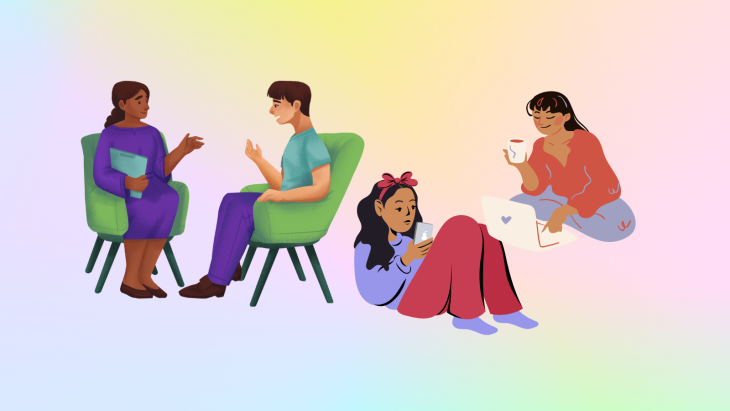Recent Posts
- Am I too sensitive to noise? It drives me crazy! The psychological effects of noise on mental health
- What are the signs that I am avoiding grief? How avoiding processing loss impacts mental health
- My son's disruptive behavior is affecting his life. How can I help him improve?
- I want to be ready for motherhood: Exploring pre- and postnatal mental health issues
- Effects of positivity on job search motivation. How do I stay confident when my job search gets tough?
Most Popular
I am a Latina. Should I look for a Latina therapist to best understand my experiences to best help me?

What is the goal of mental health therapy? At the bottom line, therapy is aimed towards producing positive changes that make the client’s life, their attitude, behaviors and thinking patterns so much better than they were before.
But one of the questions that surround getting therapy is whether the choice of a therapist based on their ability to relate to the client culturally significantly affects the client’s experience, and ultimately, the effectiveness of mental health therapy.
Should you get a therapist who belongs to the same culture or has the same ethnicity as you?
That is a hard question to answer, albeit important, and it may boil down to your preference. Here are things that you can consider when choosing a therapist.
The Latino/Hispanic communities’ mental health needs
The US Census Bureau projects that by 2050, the population of Latinos in the US will reach 97 million. That is roughly one fourth of the US total population.
Latinos describe themselves to be family-oriented. Research has also shown that migration is one strong factor that encourages family ties in the community. The close-knit communities provide Latinos with a support network in dealing with the stress that immigration brings.
In addition, Latino communities place importance in religion and faith, which are also factors that contribute to treating mental issues and seeking mental health service as a taboo.
There is a sense of shame and embarrassment associated with needing help with mental health matters. This places a hindrance in seeking treatment and therapy.
However, research that looked into several factors in Latino history and their social and cultural environment indicate that Latinos are in need of mental health support and services.
Issues related to communication can be a significant factor in Latino people’s experience seeking mental health therapy.
Does ethnicity or race matter when choosing a therapist?
First of all, therapists (psychiatrists, psychologists, mental health counselors, family therapists, clinical social workers, etc. ) have been trained to provide a variety of treatments including talk therapy and medications, depending on their specific qualifications and professional skills.
Therapists in general have skills in making the patient-therapist interaction a safe space for clients to work through their mental health and emotional health struggles.
In addition, in 2014, researchers collated the responses of 102 clients who underwent mental health treatment at outpatient mental health facilities and the participants were asked whether taking race and ethnicity into consideration during treatment affected their experience of mental health services.
Among the clients, those who belonged to Ethnic minority groups said race and ethnicity were very important factors. And when mental health therapists’ interventions made use of culturally-relevant practices, they reported high satisfaction with the mental health treatment.
Lastly, the importance of multicultural counseling is so important that the American Psychological Association created guidelines on how therapists can address race and ethnicity issues that affect delivery of treatment.
With these things being said, as the mental health care space is moving to a more and more patient-centered care or approach, there is a need for increasing the clients’ satisfaction in their treatment.
This satisfaction now includes a racial or ethnic match, wherein the therapist’s race or ethnicity is the same with the client’s. Many clients in the Latino and African American communities say that this is the first reason why they are encouraged to go to their fist session.
Studies have shown that racial match is linked to increased attendance to therapy, increased positive results after therapy, and client satisfaction. It seems that clients think that their therapist would have a greater understanding of them and their struggles because they share a similar culture and worldview.
In the end though, race and ethnicity is one of the factors that can make therapy more effective, but there are other factors to consider as well. As long as you find a committed therapist to work with you, they are good at what they do, and they are able to respond sensitively to needs related to culture that arise during therapy, then a good patient-therapist relationship can still be made.
Also search for available healthcare careers nationwide to get an inside look on how you can start a fulfilling opportunity that empowers others.








Comments